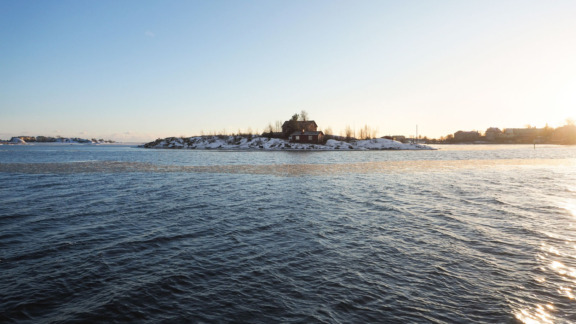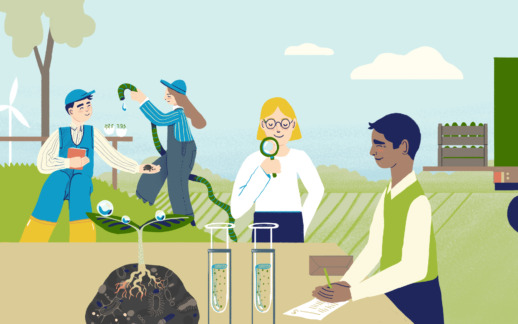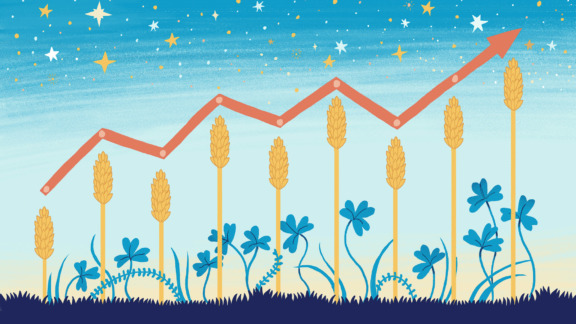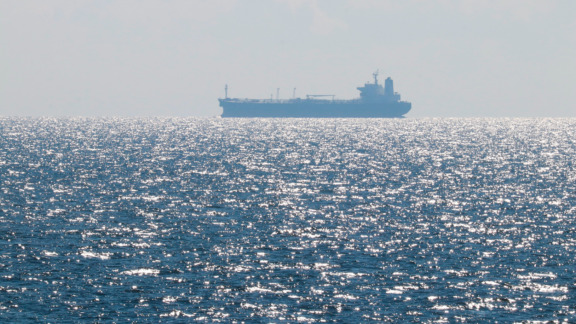Baltic Rim Economies: Not Why?, not When? – but How! – Innovative solutions for the Baltic Sea
20.12.2011 |
10 – 15 years ago we were all concerned by the mighty slogan: Globalization. Today, we are living in the effects of that globalization; it has become reality. And we have come to realize what that word means. It means very fast movements of ideas, capital, goods, diseases and people – and a sense of being close to each other on our planet.
The closeness and the fact that we can observe effects of actions far away in our close surroundings have also brought about a new awareness that all humans are living on the same planet under the same rules of life.
This, in turn, is now turning into the realization that we are all part of our environment – in fact, we are a product of the global environment and ecological web. Thus, the environment is not an external “object” that we should take care of in order to fulfill regulations or follow guide lines or codes of conduct. Our environment is the space where we are, and it is a prerequisite for our being there.
All human (and other) activity takes place in that environment. From this follows that whatever we do is dependent on the environment, and vice versa, all our activities have effects on our environment.
This is a biological fact.
Thus, from now on we have to act consciously, carefully and in a sustainable* manner, in whatever we do.
This line of thinking must not be suffocating nor create unbearable pressure to Save the World. On the contrary, it contains the seed of hope for the future and provides new ideas and enormous motivation and inspiration for any type of activity.
Into this dawning world Baltic Sea Action Group (BSAG)** has introduced a novel mode of cooperation. We are not trying to save the whole planet but we concentrate on a well defined and well analyzed area, the Baltic Sea area.
BSAG was founded in 2008. The foundation is a Finnish legal entity but acts as a neutral part on behalf of the whole sea, not on behalf of any state or organisation
As stated over and over again, the Baltic Sea faces an ecological disaster. In some areas thresholds have been passed already: fishery, oxygen levels, eutrophication locally. If all hazardous substances of bottom sediments were released into the sea, we would face serious risks to human health for centuries to come. This means that the marine environment close to us is already in a state that cannot be accepted if we wish to stay a part of the global web of life.
This provides a concrete background to new actions. There is no point in blaming those who might have caused the present situation – we all have, in one way or the other. BSAG has therefore set out to engage all capable actors and to speed up the processes needed to save the sea.
The cornerstones of the novel private – public partnership are:
1. Everyone can do something
2. All humans perform the best when they are motivated
3. Any kind of incentive is a strong motivator to achieve goals
4. Nobody can save the Baltic Sea alone
5. Everybody performs optimally when allowed to do what they master best
6. Visible and strong role models have huge impact
7. Without pull and push from those in power, most initiatives will fail
BSAG has created a new way of cross-border cooperation (pt 4 above) based on voluntary actions by the participants. Everybody performs tasks of their own expertise (1, 2, 5) and with their own resources. In this way the actors perform at their best, doing what they know the best (5), without creation of any new managing structures.
A main driving force behind the process is the engagement of business enterprises and companies into the field of true and realistic actions for the environment (3). Companies are part of the process because by performing their Baltic Sea-focused tasks they can develop their contact network, their markets, products and concepts (2, 3).
Thus, a large group of experts and organizations have brought their expertise to the benefit of the sea, and this concept has proven very efficient.
The role of BSAG is to keep the Baltic Sea issues on top of the political and social agendas in the countries surrounding the Baltic Sea and to coordinate and focus the different actions (7).
To achieve this, BSAG asks for public statements, Commitments, from all involved parties. These Commitments describe – in a standard format – what the actor will do and in what time. In this way the public can learn which actions are under way.
Another tool to keep the Baltic Sea on the agenda is the Baltic Sea Action Summit (BSAS). The first Summit was arranged in Helsinki in February 2010. To this event all Heads of State were asked to make a Commitment and were invited by a trio consisting of the President of Finland, Tarja Halonen, the Prime Minister of Finland Matti Vanhanen and the Chairman of the BSAG Foundation Mr. Ilkka Herlin (4, 6, 7).
BSAS 2010 in Helsinki was a success, presenting some 150 Commitments from all Baltic Sea countries, including those of the Heads of State. One of the most concrete and valuable Commitments was that of the Prime Minister of the Russian Federation Vladimir Putin, announcing the building of a new efficient waste water treatment plant in Kaliningrad. The Summit was widely followed by international media, and fulfilled its main purposes: To link all levels of society and actions, to gain attention to the ecological state of the Baltic Sea and to speed up processes to rescue it (4, 7).
The main tasks of BSAG are to keep up the momentum gained at the Summit, to manage the Commitments given, and to collect new Commitments. For new Commitments, BSAG is constantly in contact with companies, governmental bodies and other organizations to find matches between expertise and resources and actions for the benefit of the Baltic Sea.
The Summit is a one-day bi-annual event to be arranged in cities around the Baltic Sea. The Summit functions as an international platform for this new way of concrete cooperation, and focuses the main issues efficiently. It also represents the development of this movable rescue process.
In February 2010 BSAG arranged a Follow-up event of the Summit in Helsinki, in the presence of President Halonen and ambassadors from all Baltic Sea states. The ambassadors reported on the progress of their respective Commitments. Good progress was stated and President Halonen announced greetings from Prime Minister Putin that the Russian Federation wishes to host the next Baltic Sea Action Summit.
BSAG is also introducing its activities into Sweden, and as part of that process the “Baltic Sea Living Room” event was arranged in Turku/Åbo in September 2011. In the living room a selected group of new Commitments were presented to HRH Crown Princess Victoria of Sweden and Prince Daniel.
BSAG is now gearing up for the coming Baltic Sea Action Summit and is preparing to leave the shores of Finland to sail on the open waters of the Baltic Sea.
Only by entering ports of all Baltic Sea countries can we all together save our sea for future generations.
* Sustainable = Capacity to endure. For humans, sustainability is the long-term maintenance of well being, which has environmental, economic, and social dimensions, and encompasses the concept of union, an interdependent relationship and mutual responsible position with all living and non living things on earth.
Sustainable development = The Brundtland Commission of the United Nationsstated on March 20, 1987: “Sustainable development is development that meets the needs of the present without compromising the ability of future generations to meet their own needs.”
** The Foundation for a Living Baltic Sea operates under the name Baltic Sea Action Group (BSAG)
by Mathias Bergman, Secretary General, BSAG
Published in Baltic Rim Economies 5/2011
BRE 5-2011 21 12 2011 (2).pdfBRE 5-2011 21 12 2011 (2).pdf



